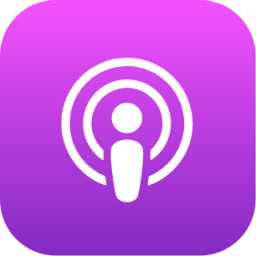Listen to the Homily
Read the Homily
After I was first ordained, I knew a priest with a long gray beard. He would stroke it while I talked which gave me the impression that he was paying attention. One time I said too much and it prompted him to ask me, “Peter, do you pray?” I replied, “Of course, I pray. What priest doesn’t pray?” He continued, “That is not what I mean. Do you pray in a way that your batteries get recharged? Are you transformed? Are you a new man after you pray?” I truthfully answered, “That usually doesn’t happen.” He then advised me, “Peter, you need to learn how to pray.”
Jesus went into the desert for forty days and forty nights. During this time, we see Jesus praying, fasting, exchanging Scripture quotes with the devil, and winning arguments. This is all nice but it makes me think if Jesus would have had something better to do with His time and gifts. There is a woman who has been hemorrhaging for twelve years. While she is running around spending all her money on one doctor after the other, Jesus is in the desert for forty days. There is a young boy who is possessed by a demon. His dad reported that the demon threw him into the water to drown him and then into flames to burn him. While this boy suffers seizures and torment every day, Jesus is in the desert. There is also a man with a withered hand. You cannot hold a job with a withered hand. You can’t even hold your child with a withered hand, yet another day in his life ticks by while Jesus is in the desert for forty days and forty nights. Many people would benefit from the hopeful message but must remain on hold. Yet, somewhere out there a priest with a long gray beard will insist that Jesus needs to charge his batteries. He needs to gain strength for His mission. Before Jesus did anything great, before He called the twelve, before He fed thousands, before He walked on the water before He was transfigured before Peter James and John, before He saved the world by the cross and resurrection, Jesus went to a quiet place and prayed. It is not about running around doing a bunch of deeds. It is about what you do before that determines the greatness of what you do after.
There was a surgeon who went into a patient’s room to go over his heart operation. After explaining the procedure, the doctor asked the patient if he had any questions. The patient replied, “I have one question. What are you doing tonight?” The doctor was perplexed but answered honestly. He stated, “After I talk to you and you sign the release form, I am going home. I will have dinner with my wife. I will enjoy some light reading, and then I am going to bed. Why do you ask?” The patient continued, “Because if you said I am partying with the boys, or I have the night shift in the OR, I would not sign the release. But now that I know that you are going to be preparing your mind and your body for my surgery I will sign the form.”
The Jewish people always practiced the Sabbath. That is, they did not work one day of the week. No one in the ancient world did that. If you took a day off, you would be giving your competition a huge advantage. Let’s say you are in the pottery business. You take your Sabbath. On Monday morning when you go into work before you make the first ceramic teacup, your competition is ready to ship. Or let’s say you are a fisherman. While you are taking your day off, the competition is out there catching fish. On Monday, before you even throw the net over the boat, your competition is flooding the market with fish, driving the price down. Still, the Jewish people beat their competition. How? They were on their A-game; they knew how to work together as a team. They made up the time with efficiency. The Sabbath was rather a huge advantage over their competitors.
The reason why we take our forty days of Lent so seriously is that we are absolutely convinced that God has called us to do great things for others. It is about what we do before that determines the greatness of what we do after.
Back to All Homilies

